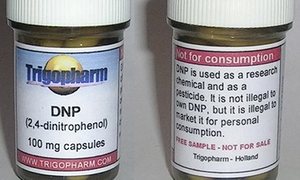
 DNP, offered on the web as a fat-burning diet pill, was attributed to more than 60 fatalities. Photo: Mark St George/Rex Features
DNP, offered on the web as a fat-burning diet pill, was attributed to more than 60 fatalities. Photo: Mark St George/Rex Features
Attempts to create a safe and effective weight loss pill have foundered repeatedly, permitting the world wide web trade in illegal and ineffective herbal supplements and dangerous medications, such as for instance DNP, to grow.
A fruitful diet pill will make billions for pharmaceutical business, but attempts up to now have ended in tragedy, with customers harmed, medicines prohibited and massive compensation paid.
Fen-phen, an appetite retardant, ended up being probably the most dazzling failure. It absolutely was withdrawn in america in 1997 after causing extensive heart device harm.
Now, two other diet pills happen taken off the marketplace in the UK – sibutramine (Reductil) and rimonabant (Acomplia). Both experienced the considerable trials expected to get a licence and did actually work, but once they were being popular, dangerous side effects emerged.
Rimonabant made some individuals feel suicidal. Sibutramine increased the probability of having a non-fatal coronary attack or stroke.
The only drug which includes formal NHS approval – orlistat, offered in name brand Xenical – is unpopular. It really works by preventing the consumption of fat when you look at the instinct and frequently triggers diarrhoea. It will absolutely nothing to dampen the appetite. The nationwide Institute for health insurance and Care Excellence recommends it for overweight patients, but as long as they usually have managed to drop 2.5kg (5.5lb) over one month through dieting. It must be ended after 12 weeks whether they have perhaps not lost over 5per cent of these bodyweight.
Two other medicines found in great britain are not offered by NHS GPs. The appetite suppressants phentermine and diethylpropion day back once again to the sixties and therefore are privately prescribed by health practitioners doing work in slimming centers. They have been appropriate, after a failed make an effort to ban them a decade ago, but are not into the prescribing guides employed by NHS GPs.
The story regarding the appetite suppressants being utilized, but not NHS-approved, is simply among the strange components of the world of diet medicines. They certainly were being used before Fen-phen scandal caused a climate of dangerous viewpoint, according to Robert Houtman, the handling director associated with the nationwide Slimming and Cosmetic Clinics sequence.
"there is a big press promotion against diet pills in america, " he said. Great britain federal government "decided to obtain in the bandwagon and also these dangerous, addicting drugs prohibited".
But a report because of the drugs Control department in October 1995 discovered no reason at all to do so, partially due to a dearth of research from the medicines. It determined there clearly was insufficient proof of significant problems for the public from utilization of the drugs in slimming clinics.
As soon as the European drugs Agency nonetheless launched it absolutely was revoking the medicines' licences, the pharmacist Tom Chapman, which manufactures phentermine and diethylpropion at their family members business, Essential Nutrition, in Brough, near Hull, fought the decision into the European process of law and won in January 2003.
Chapman supplies the personal slimming clinics associated with the Obesity Management Association, that he and Houtman are founder people.
"We only provide OMA members, " he stated. "which has been a long struggle aswell. Originally, doctors were selling it from automobile shoes and all types plus it had been getting a really bad reputation. Therefore we ended that and said you need to have premises – correct premises."
How good the medicines tasks are a matter of debate. The OMA promises a study of 947 customers at 20 clinics showed they lost an average of 9.6kg, 9per cent of these bodyweight, over 12 days. But individuals taking the drugs also get once a week consultations with a health care provider and weight loss programs and exercise besides, that might account for the weight reduction.
Herbal solutions and supplements have already been disappointing. Hoodia, derived from a cactus plant, when seemed very encouraging. Its chewed because of the San hunter-gatherers of southern Africa during long expeditions to stave off hunger. Although South African federal government experts isolated the component and patented it, neither Pfizer nor Unilever could develop a viable product.









